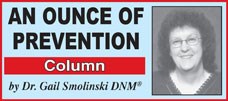Irritable bowel syndrome affects 15-25 per cent of people in our society! One in 10 people are affected seriously enough to seek medical help. Usually, symptoms first appear between the ages of 15 and 40. Twice as many women as men are affected.
Symptoms include bloating, abdominal pain, especially cramps and spasms, and abnormal bowel function, including unusual diarrhea or constipation.
Some people with IBS have hard stools and experience constipation, while others may have loose stools and a feeling of urgency to have a bowel movement.
Constipation is more common in IBS sufferers, though sometimes constipation and diarrhea alternate in the same individual. These symptoms are often accompanied by pain. In some people, diarrhea comes on after a meal or when they wake up in the morning.
After a bowel movement, IBS sufferers may still feel a need to empty the bowels. This can lead to unproductive straining, in attempts to pass more stool. This, in turn, can lead to hemorrhoids.
Abdominal bloating often occurs, to the point that clothes feel tight and uncomfortable. The bloating may be accompanied by rumbling noises and flatulence. Often, eating triggers it and it may worsen throughout the day.
However, IBS does not have the inflammation or obstruction associated with other diseases of the intestinal tract. It does not appear to be a progressive disorder that gets worse as time goes by.
It is chronic, occasionally flaring up, then subsiding again. Its symptoms are intermittent. There may be occasions when there are very few symptoms.
However, it can be aggravated or accompanied by stress and anxiety, which can cause muscles to tense, make the bowel contract more rapidly and blood flow to decrease. Nevertheless, its symptoms result from a physical disorder.
Known triggers also include a lack of dietary fiber, as well as food intolerances, infections, antibiotics, smoking, and even menstruation.
It is thought to be a functional, rather than a biochemical change in the colon.
IBS is a disorder in the way in which the nerves that link the brain and bowel work... The gut becomes hypersensitive, behaving exactly as in other people, but with much less provocation.
For instance, IBS sufferers seem to have increased pain sensitivity in the lower bowel, to the sensations of bowel function.
Abdominal pain or discomfort can be experienced either as a continuous dull ache or in the form of cramps, both of which come and go in waves. Pain and discomfort can occur anywhere in the abdominal area, although it tends to be worse low down on the left-hand side. The pain generally comes on after eating and is worse during bouts of constipation.
IBS sufferers also often experience other, non-intestinal symptoms. The range is wide: fatigue and lethargy, urinary frequency and urgency, recurrent back and loin pain, chest pain and palpitations, shortness of breath, wheezing, asthma and hyperventilation have all been reported.
A whole food diet is recommended, including natural fiber supplements, such as flax seed and psyllium seed, to help maintain high fiber levels and proper bowel function.
Irritants, such as tea, coffee and alcohol, should be avoided. Possible allergies should also be addressed, particularly dairy and wheat.
A personal nutritional support program, that meets the unique needs of the individual, can be invaluable in minimizing the discomfort of IBS, while helping to maximize one's health and well-being.
There are also a number of homeopathic remedies to address the specific symptoms of IBS. Help is there... Don't despair!
Dr. Gail Smolinski, Doctor of Natural Medicine, has her Doctor of Naturopathy degree and is Board Certified in Traditional Naturopathy and in Nutritional Wellness.
She is a Certified Low Intensity Laser Therapist, Master Herbalist, Registered Nutritional Consultant, Professional Homeopath and Holistic Iridologist.
Dr. Gail offers Low Intensity Laser Therapy, individual health consultations, bio-energetic therapies, detoxification footbaths and a wide variety of professional health products at her natural health clinic. You may contact her at 306-783-1261.
This column is not intended to diagnose, treat or cure any disease. It provides general information about health and nutrition. It is run bi-weekly, space permitting.




